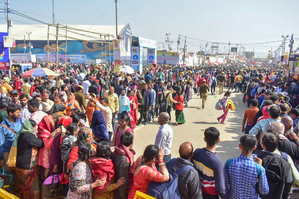As people are unaware of hepatitis, the cases have been increased by six percent compared to the previous year, said health experts on World Hepatitis Day which falls on July 28.
They said that people die much worse compared to malaria, and tuberculosis and the disease should be prevented by 2030 with a person dying every 30 seconds from a hepatitis-related illness even in the current COVID-19 pandemic.
This year’s theme by WHO is ‘Hepatitis can’t wait’, conveying the urgency of efforts needed to eliminate hepatitis as a public health threat by 2030. Hepatitis is an infection of the liver, and it is classified as Hepatitis A, B, C and D, among these A and D short term infections, it gets cured within few days or weeks, whereas B and C are stays in the body for a longer, if the treatment is not taken properly, it can be in the body for a long time and after a few years it can manifest as two things either as completely damaged liver which is liver cirrhosis or liver cancer. It is also transmitted through blood and blood product transmitted infection.
“A study shows that there are 300 million people are suffering from chronic hepatitis across the world, and it causes serious problems like death because of liver cancer. This is not something with the short-term disorder the world has been trying to create awareness of; the incident is not going to bring down the case in one or two years of lockdown. It has not reduced the infection even during the pandemic, whereas, the cases have been increased by six per cent. Also, people should be more aware of this hepatitis, and know that it is a silent killer,” said Prof Dr Kapali Neelamekam, Senior Surgeon, (Gastro and Minimal Access Surgery), Fortis Malar Hospital.
The experts said that with a person dying every 30 seconds from hepatitis-related illness even in the current COVID-19 crisis it cannot wait to act on viral hepatitis. Being a serial killer, it is the second most common infection responsible for a high mortality rate following tuberculosis, with a 96 percent mortality rate in Hepatitis B and C. They also said that similar to COVID-19, even hepatitis vaccination is the only prevention.
“People should be vaccinated for Hepatitis B, which is very effective and it should be taken three doses in the interval of one month and six months. However, for hepatitis C, there is no vaccination, but it can be prevented by screening in the community. Vaccination is the only thing that can help from this disease because once they are infected it is difficult to treat,” said Dr Elan Kumaran- Head, Liver Diseases and Transplant Centre, Kauvery Hospital.
“Meanwhile, identifying a person with hepatitis is not so easy, It can be identified only when a person is donating blood, and that time the blood is screened and it might show whether it is hepatitis B or C. or somebody who is having other disorder when checkup it can be identified goes for master, and other liver illness,” he added.























